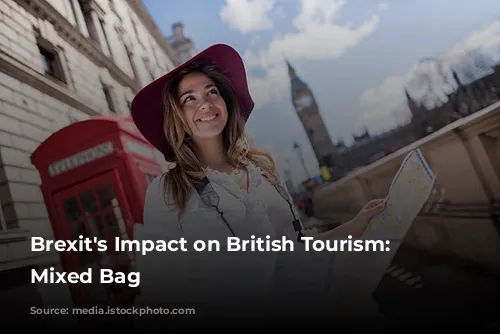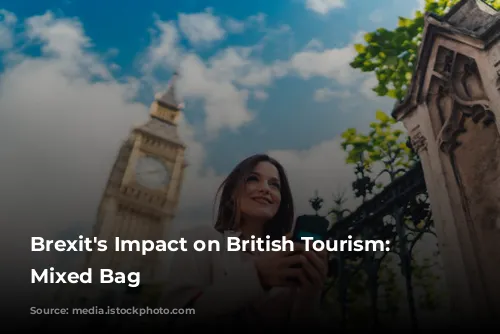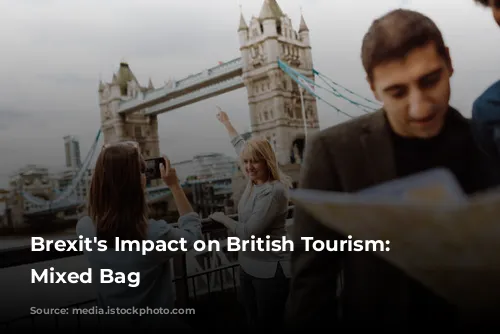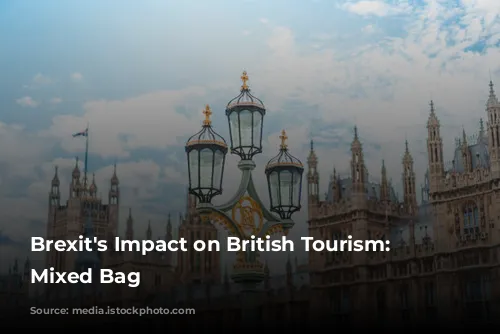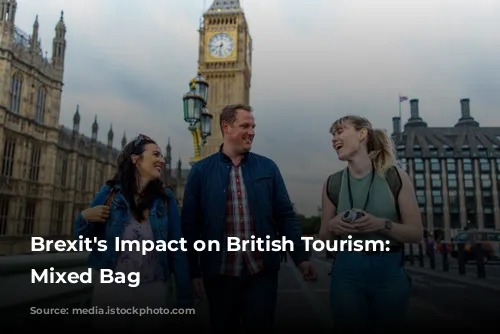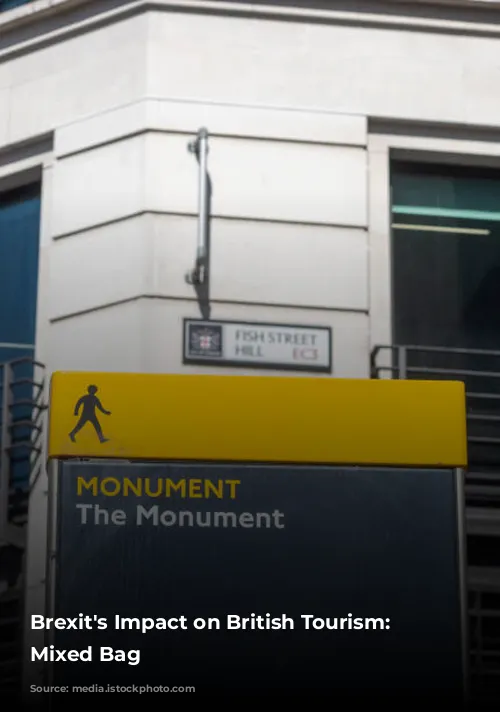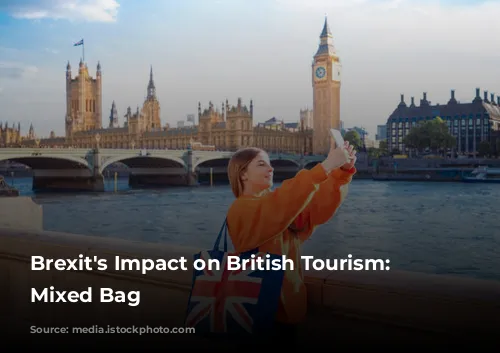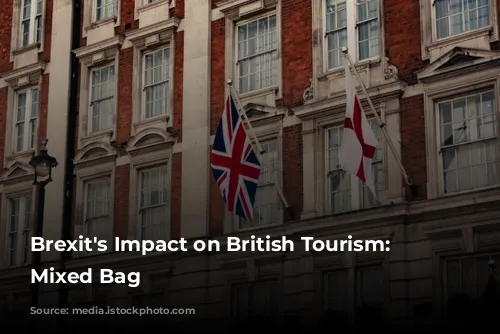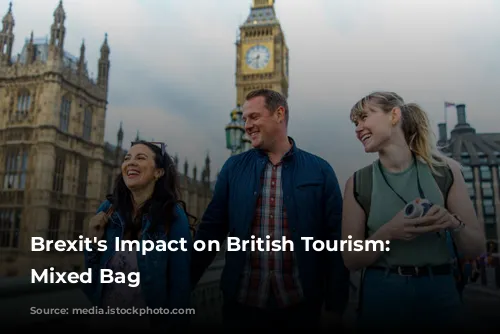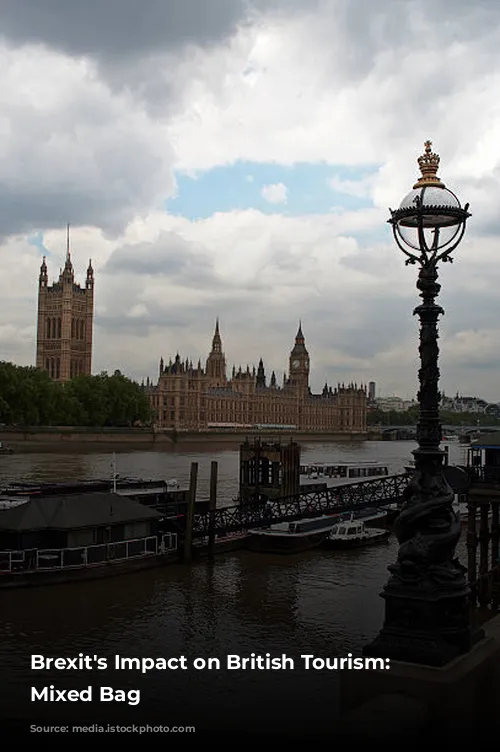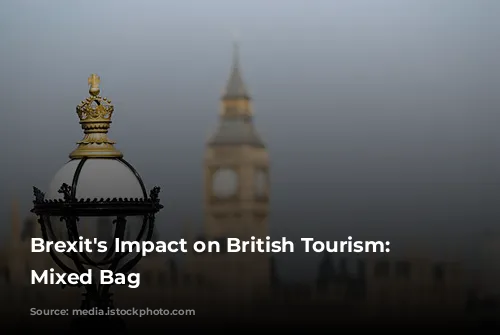The UK’s departure from the European Union, known as Brexit, has brought about significant changes, influencing various aspects of life, including tourism. While the long-term repercussions are still unfolding, one thing is certain: visiting Britain has become more complex for EU citizens.
Before Brexit, EU citizens could freely enter Britain using just an ID card. However, since October 2021, only those with EU passports can enter without additional documentation. This has caused a drop in EU visitors, as only two out of three EU citizens are estimated to possess passports.
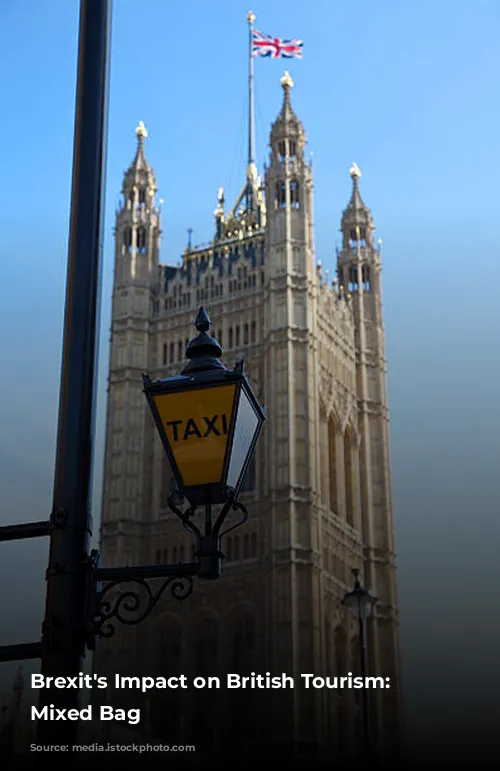
Navigating Post-Brexit Travel
Despite the challenges, Britain’s tourism industry has shown some resilience. Visitor numbers in 2022 were about a third lower than 2019 levels, but this decline can’t be solely attributed to Brexit. The COVID-19 pandemic had a substantial impact on global travel, making it difficult to isolate the effects of Brexit.
Interestingly, visitor numbers in the spring of 2022 were close to pre-pandemic levels, suggesting that the lifting of travel restrictions might be a more significant factor than Brexit in driving tourism recovery. However, it’s unclear if this positive trend is solely due to eased travel restrictions or if it also reflects an adjustment to the new post-Brexit rules.
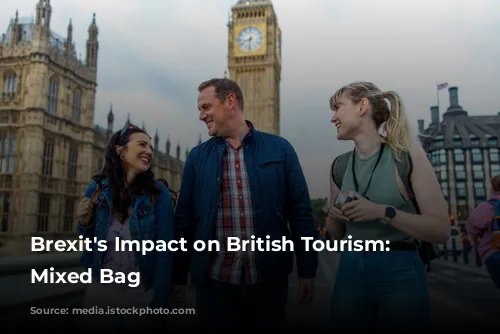
Rising Costs and Labor Shortages
Brexit has also brought about challenges for European tour operators. Higher prices for hospitality services in Britain are making trips more expensive. One German tour operator reported that he has had to double the price of his Scotland tours due to rising costs for hotels and other services. He pointed out that the costs have increased despite offering identical tours, reflecting the overall price hike in the British hospitality sector.
Brexit, alongside soaring inflation, has contributed to the rising costs. The increased paperwork needed for trade with European countries has added to inflation, leading to higher prices for touristic offerings. However, it’s crucial to acknowledge that other factors, such as rising energy costs, also play a significant role in price increases.
Moreover, staff shortages in the British hospitality sector are exacerbating the situation. Pandemic-related lockdowns caused many hospitality workers to seek jobs in other industries or return to their EU home countries. This has left the sector, previously reliant on EU workers, facing a labor shortage.
This shortage is evident in the numerous reports of reduced restaurant hours and other operational challenges due to a lack of staff. The post-Brexit immigration rules have made it more difficult for EU citizens to work in the UK, hindering the hospitality industry’s ability to easily fill vacant positions.
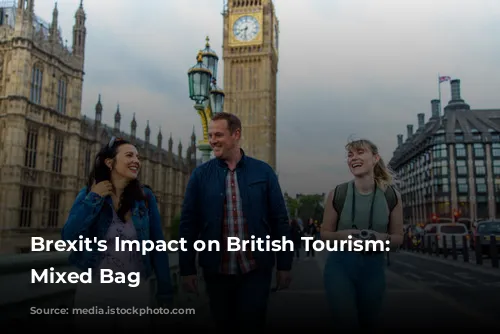
Looking Ahead: A Focus on Collaboration
Despite the challenges, there is optimism about Britain’s future as a tourist destination. The UK tourism trade association believes that events like King Charles’ coronation and the Eurovision Song Contest will boost awareness and encourage visits.
To address the labor shortage, the association advocates for work and travel agreements with EU countries, similar to the Australian model of working holiday visas. This would provide a temporary source of labor for the hospitality sector and promote cultural exchange. The association believes that these programs, by fostering young people’s exposure to Britain, could have long-term benefits, encouraging future visits and investments in the country.
In conclusion, Brexit has undoubtedly brought challenges to the British tourism industry, impacting both visitors and businesses. While the full consequences are yet to be seen, the industry is adapting and looking ahead, focusing on attracting visitors while addressing workforce challenges through collaborative efforts.
